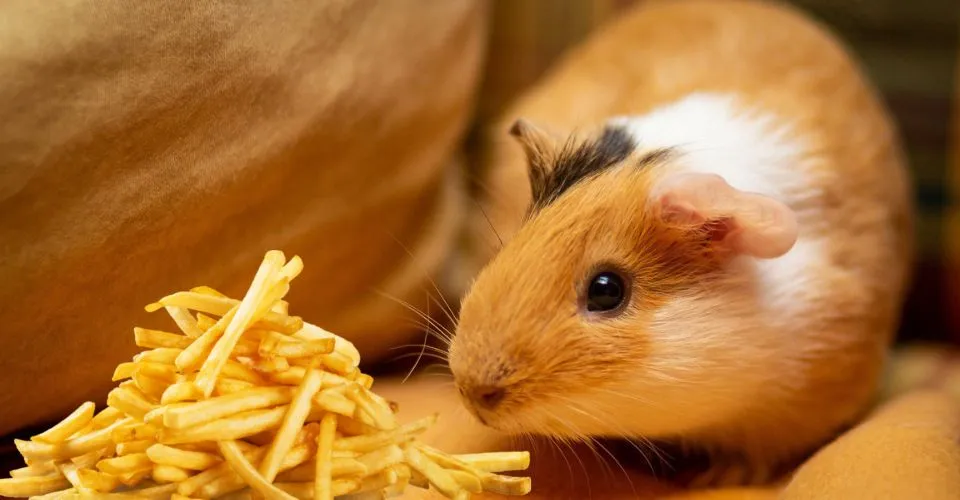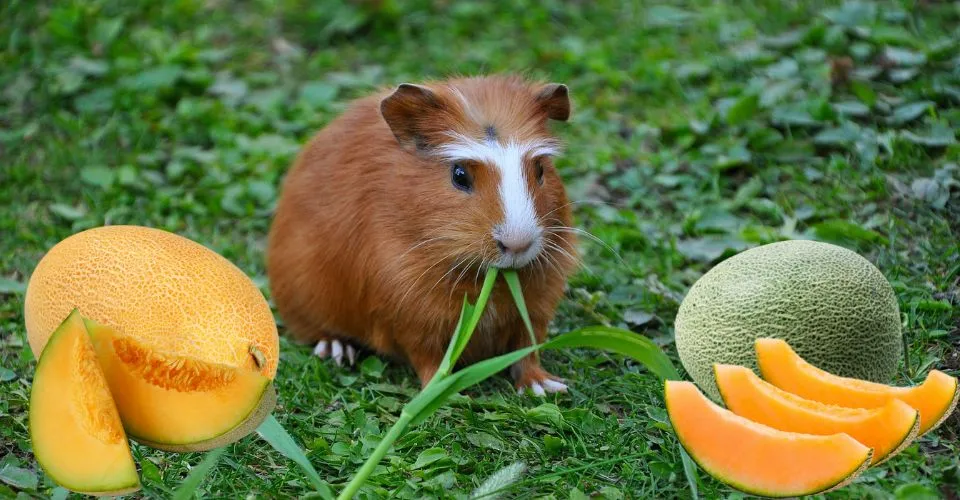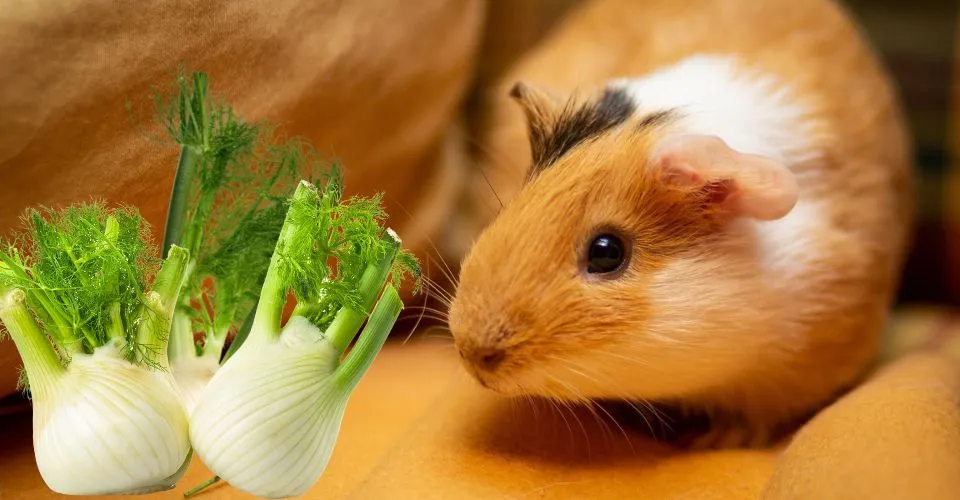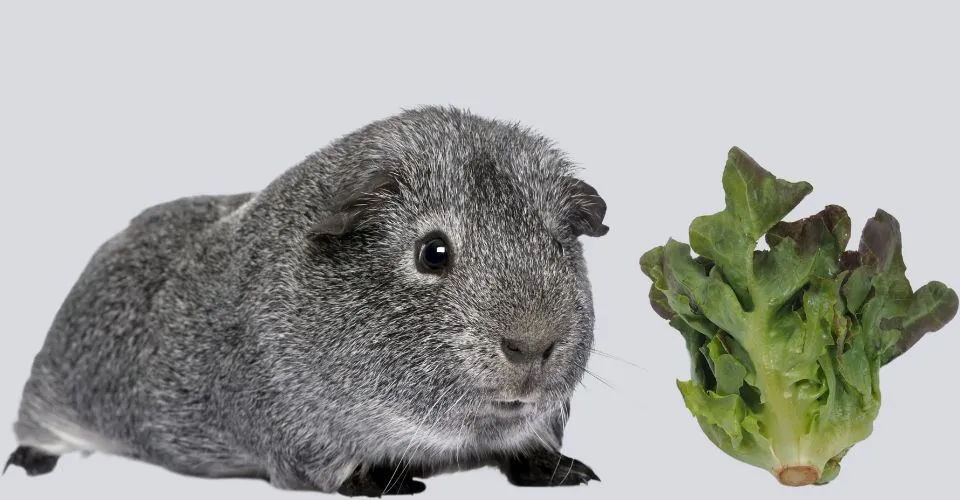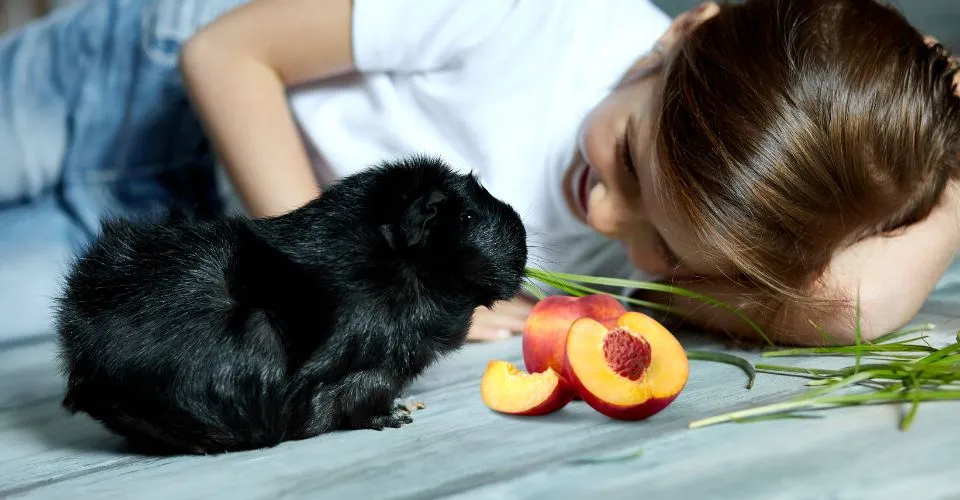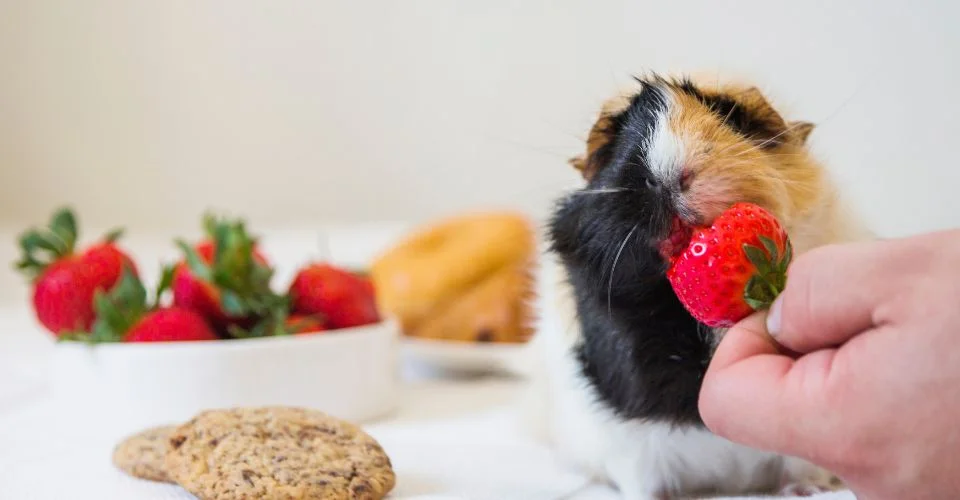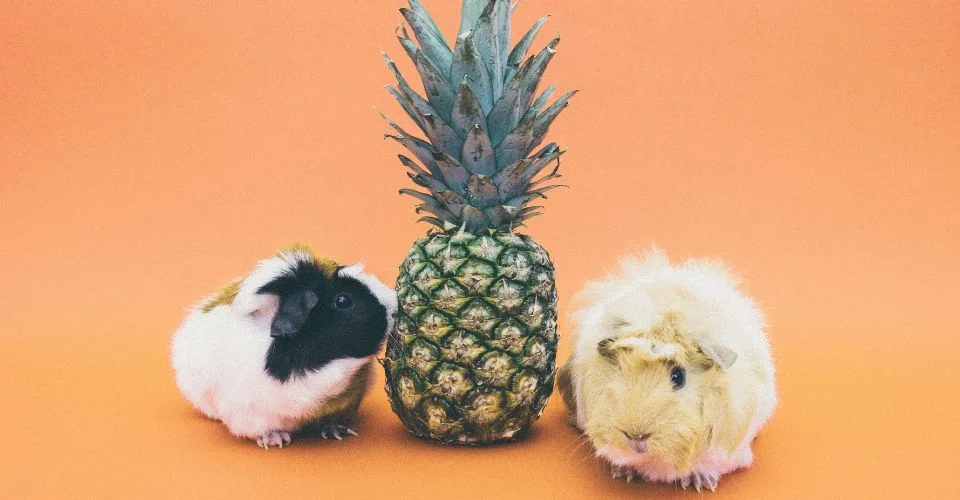We love our guinea pigs and want to share every joy of life with them. It is the reason that when having delicious fruit like plums while sitting next to a guinea pig cage, guinea owners find it hard to resist giving their piglets a taste of plums.
Guinea Pig and Plums
Juicy plums are just too sweet and refreshing to keep away from guinea pigs. But are plums good for guinea pigs? Can guinea pigs eat plums? If a wild guinea pig happened to come across a ripe plum, would it choose to eat it or not?
If you love plums and are a proud guinea pig owner and have been thinking about treating your piggies with plums, continue reading. In this blog, we are going to discuss all about guinea pigs and plums.
Can Guinea Pigs Eat Plums?
Yes, guinea pigs can eat plums.
Loaded with useful vitamins and minerals, plums make a healthy snack for guinea pigs when eaten in moderation. But you should keep in mind that plums are brimming with sugar, making them unhealthy for piglets. Besides sugar, you should also be cautious about the pit of the plum as it contains cyanide and poses a choking risk to guinea pigs.
Continue reading as we dig further into the health benefits and hazards of plums for guinea pigs.
Nutrient Profile of Plums
Fresh plums are laden with useful minerals and vitamins. But to be able to fully grasp if plums are healthy for guinea pigs or not, we’ll have to take a look at their nutrient profile. Here is a list of beneficial nutrients present in 100 grams of plums:
| Nutrients | Amount per 100g |
| Water | 87.2g |
| Energy | 46Kcal |
| Protein | 0.7g |
| Fat | 0.28g |
| Carbohydrate | 11.4g |
| Dietary fibers | 1.4g |
| Sugars | 9.92g |
| Calcium | 6mg |
| Potassium | 157mg |
| Magnesium | 7mg |
| Vitamin C | 9.5mg |
| Vitamin B-6 | 0.029mg |
| Vitamin A | 17µg |
| Vitamin E | 0.26g |
| Vitamin K | 6.4µg |
Are Plums Good for Guinea Pigs?
Packed with healthy minerals and vitamins, plums make a good and healthy snack for guinea pigs. Antioxidants and flavonoids present in plums help piggies fight toxins and inflammation. Potassium helps maintain healthy blood pressure. Where vitamin B6 supports the functioning of the nervous system, vitamins A, C, and K boost the immune system.
Hydrating and Guinea Pigs Love It!
To begin with, brimming with water, plums make a great refreshing fruit, and our guinea pigs love it. If you share plums with your guinea pig, you will know how much they love it. They will not stop eating until the whole bucket of plums has vanished. After finishing the bucket, they will start licking the plum juice that they got on their skin while eating. They just can’t get enough of this juicy fruit.
Vitamin C keep Scurvy Away
Just like us humans, our piglets are also unable to synthesize their own vitamin C; thus, consumption of vitamin C is necessary for both guinea pigs and humans to stay healthy. If guinea pigs don’t get ample vitamin C in their diet, they will experience scurvy and other health issues. Therefore, the vitamin C in plums would help keep scurvy away from our piggies.
However, the vitamin C present in plums is just not enough for our guinea pig. So, you will have to provide them with vitamin C supplements. You can also get high-quality guinea pig pellets with added vitamin C.
Vitamin C, A, K Boost Immune System
The presence of useful vitamins like vitamin A, vitamin C, and Vitamin K in plums make them a great snack for the guinea pig’s immune system. These vitamins help boost the immune system of guinea pigs and strengthen their defense against diseases. Vitamin C is primarily known for helping with inflammation and increasing immune functions.
High Dietary Fibers Support Healthy Digestive System
Plums are high in dietary fibers—100g of plums contain around 1.4g of dietary fibers. These dietary fibers are good for the gut health of guinea pigs. They help smoothen the bowel movement in guinea pigs and improve the overall gut health. They would even help guinea pigs with constipation.
Potassium Helps Maintain Healthy Blood Pressure
A 100g serving of plums contains 157mg of potassium. Potassium helps guinea pigs maintain healthy blood pressure. And with 6mg of calcium present in plums, it also helps maintain healthy and strong bones in guinea pigs.
Vitamin B6 Supports Functioning of Nervous System
Vitamin B6 present in plums improves the functioning of the guinea pig nervous system by smoothening the transmission of the nerve signals.
Are Plums Bad for Guinea Pigs?
After reading the health benefits of plums for guinea pigs, you might be dying to treat your piglet with a bucket full of plums. But let me stop you and tell you that guinea pigs can only enjoy the above-discussed health benefits of plums if they consume them in moderate amounts and with great care, as there are several drawbacks to feeding plums guinea pigs. Take a quick look at what makes plums bad for guinea pigs below.
Pit in the Plum
The pit makes plums bad for guinea pigs for choking hazards and cyanide poisoning. The pit is hard and, if swallowed, will choke the guinea pigs. On the other hand, if a guinea pig were able to crush the pit, it would experience cyanide poisoning as the amygdalin present in the pit would be released and converted into cyanide, which is highly toxic for the guinea pig. Therefore, it is crucial that you always remove the pit before offering plums to your guinea pig.
The Sugar Content of Plums
The sweetness of plums makes them an irresistible for humans, and perhaps for guinea pigs as well. This is what makes them a concern for guinea pigs. Ingestion of excess sugar would upset your piggy’s stomach as guinea pigs have a hard time digesting sugar. They may experience cramps and diarrhea when they consume plums in excess. Besides that, excess sugar would also increase the risk of obesity and diabetes in guinea pigs.
Can Guinea Pigs Eat Plums Leaves?
No, guinea pigs should not be fed the plum leaves or tree branches as they contain traces of cyanide, enough to upset their tiny stomachs. Besides, the branches would pose a choking hazard to guinea pigs. So, it is best that you only offer them the plum and that too in moderation.
Can Guinea Pigs Eat Plums Skin?
Indeed. Actually, most of the antioxidants are present in the plum skin, so you shouldn’t peel off the plum before offering it to your little friend. However, you should chop the plum into small bite-size chunks to make it easier for guinea pigs to devour.
Can Guinea Pigs Have Canned Plums?
You may think that seedless and skinless canned plums would be best for guinea pigs, but unfortunately, they are not. You should avoid feeding canned plums to your piggy friend as they contain food preservatives, artificial sweeteners, and other harmful chemicals to guinea pigs.
Can Guinea Pigs Eat Dried Plums?
Yes and no. Guinea pigs can eat dried plums (prunes), but given that they are calorie-dense and jammed packed with sugars, you should not feed them to your piggies. That said, if your guinea pig has eaten a prune, there is nothing to worry about: your piglet may experience a bit of stomach ache, but it’ll get better on its own after some time.
How often should I give Plums to my guinea pig?
While it is completely safe and healthy to feed plums to guinea pigs sparingly, you should never make it an integral part of the routine guinea pig diet. You can feed plums to your guinea pigs once or twice a week, in small amounts.
How to Feed Plums to Guinea pigs?
- Before offering plum or any other fruit or veggie to your piglet, you should make sure that they are fresh and organic.
- Thoroughly wash it to get rid of the potential chemicals and pesticides on it.
- Remove the pit and chop it into small bite-sized pieces for your guinea pig to reduce the risk of choking.
- If the guinea pig does not like it, remove the plum skin.
- Visit your piglet after some time, and if there is any fruit left, you should remove it from the cage.
Check out other guides to what guinea pigs can or cannot eat:

